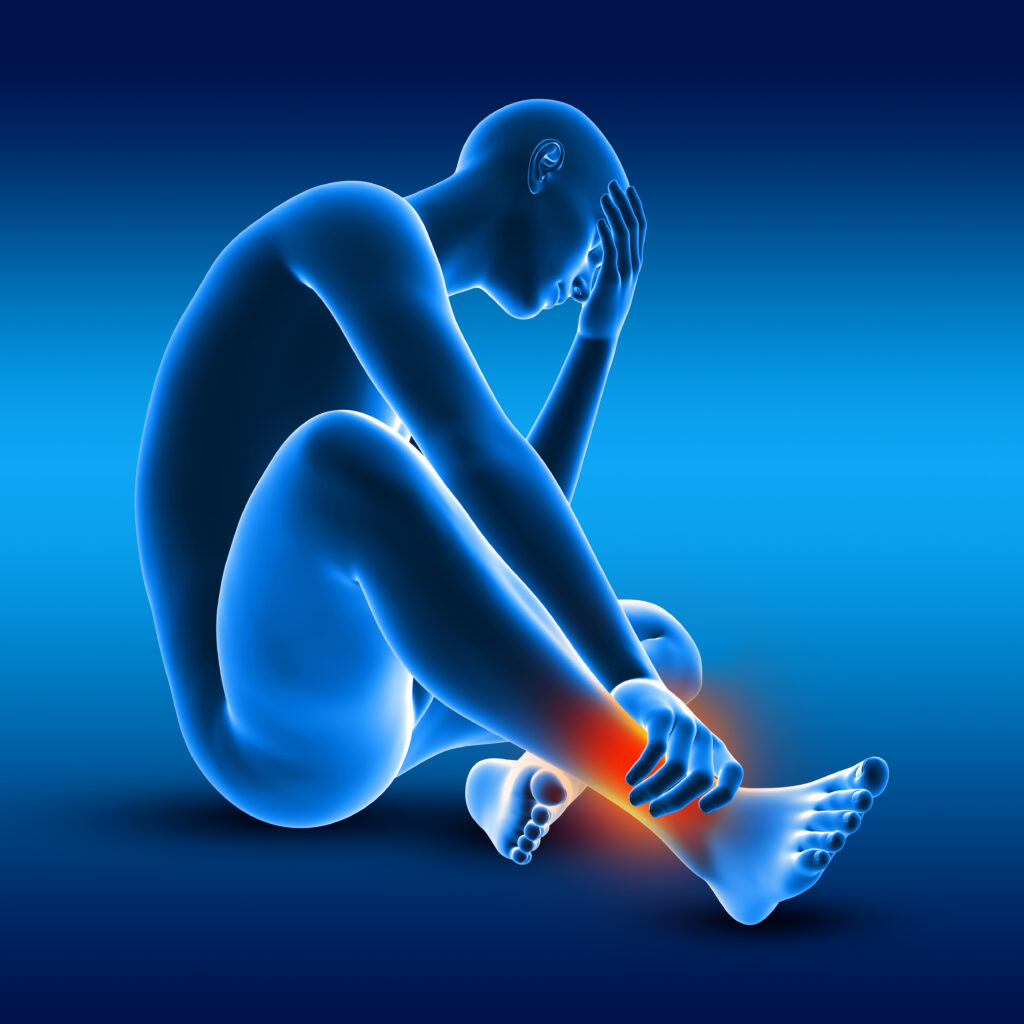Higher uric acid levels in your body are medically termed Hyperuricemia. You can reduce uric acid in your body with some dietary measures, supplements, and medications. Higher uric acid levels in your blood also cause gout leading to the formation of crystals in your joints, toes, and feet.
Overview of Uric Acid
The breakdown of certain chemicals in your body called Purines, creates uric acid. Your body itself can produce purines while some drinks and edibles also contain it. Uric acid is produced as a waste product during the digestive procedure of purines. Most of the uric acid easily dissolves in your blood and thus can be filtered through your blood with the help of kidneys. Kidneys usually filter waste materials from your blood and convert these wastes into urine. The urine with a lot of water materials gets excreted from the body. Uric acid is one of the major wastes found in urine. Thus kidneys are a source of removing excessive uric acid from your blood. However, too many quantities of uric acid in your blood lead to Hyperuricemia and gout. Reduction in uric acid amount in the body helps in lowering the risk of gout and hyperuricemia as well. Here you need some natural ways to reduce uric acid in your body.
What is Hyperuricemia?
Uric acid, when clumped together in the form of crystals, causes hyperuricemia. These crystals accumulate in your joints and cause pain with a condition called gout (a type of arthritis). These crystals create kidney stones in your kidney if accumulated there.
Changing some aspects of your daily routine such as your diet and hydration can help treat this condition. Talking to your healthcare provider may help you in lowering your uric acid and treating the symptoms triggering the uric acid concentration.
How Uric Acid Causes Gout?
The body’s digestive system produces several waste products during the digestion of food. Uric acid is one of the natural waste products of your digestive system that is created by the oxidation of purines. Foods containing purines are broken down during digestion procedure and the uric acid thus produced is filtered from the blood by the kidneys in the form of urine. However, if you take foods high in purine chemicals and the kidneys are unable to eliminate all toxins including uric acid from your blood as quickly as necessary, uric acid may start to accumulate in your joints. Your uric acid must be maintained at an optimum level i.e. 6.9 mg/dl. Uric acid higher than this optimal range can lead to hyperuricemia which is the major cause of gout.
Gout causes higher levels of acid in your urine and blood. These higher levels of acids and toxins create crystals in your joints, feet, and toes. Along with an unhealthy or unbalanced diet and lifestyle, some more risk factors for higher levels of uric acid include:
- Certain underlying health conditions.
- Obesity.
- Male gender.
However, there are several methods to control the uric acid concentration in the body. Let’s learn how to reduce the uric acid in the body but first have a deep look at its symptoms and causes that can help you better diagnose the condition in time.
Symptoms of Hyperuricemia
Hyperuricemia typically does not show certain symptoms. Therefore, its diagnosis is a difficult step. People usually diagnose it after experiencing worsened symptoms of too high amount of uric acid in the body and blood. Doctors usually start work for its diagnosis in the presence of kidney stones or gout. Certain symptoms of high concentration of uric acid in the body include:
Certain symptoms of high concentration of uric acid in the body include:
- Feeling warmth in your joints.
- Tenderness of joints.
- Intense pain in joints.
- Swelling in joints.
- Stiffness of areas around joints.
- Redness and dislocation of joints.
Although hyperuricemia causes gout, a joint condition if it attacks your kidney the symptoms may be:
- Severe pain followed by vomiting and nausea.
- Pain during peeing.
- Blood in your urine.
- Smelly or cloudy urine looks.
- Feeling pee more often.
- Recurring chills and fever.
Causes of Hyperuricemia
Regular eating purine-containing foods is a major risk factor for this condition. So avoiding foods and drinks rich in purines can help you reduce uric acid in your body. First, look at the list of foods and drinks that contain higher levels of purines:
- Alcohol and beer.
- Seafood such as sardines, lobsters, and shrimp.
- Red meat including organ meats.
- Beverages rich in fructose corn syrup.
Some medications used for the treatment of some other underlying health condition can also increase the levels of uric acid in your blood, such as:
- Immunosuppressants.
- Diuretics.
Risk Factors for Hyperuricemia
A new question arises in your mind: who are the people more likely to develop higher uric acid levels? The answer is simple the people have the following attributes:
- Drinking alcohol in excess.
- Having hypothyroidism.
- Assigned to male at birth.
- Having a family history of gout or hyperuricemia.
- Having higher body weight.
Such types of people are at closer risk of getting hyperuricemia.
Natural Ways to Control Uric Acid
Although higher uric acid levels are dangerous for your health, often this condition doesn’t require a specific treatment. Most people can recover naturally by adopting healthy lifestyle changes with a balanced diet. So keep reading to find out some natural ways to reduce uric acid in your body:
Maintain a Balanced Weight
A healthy and well-maintained weight is a surety to improving overall health including reducing uric acid levels. Experts often suggest leading a simple, active life, having a balanced diet, and choosing a nutrient-dense food to maintain a moderate weight of body.
Minimize Purine-Rich Foods
Purines are found in your foods naturally. Their oxidation during the digestion of foods produces uric acid in large quantities. Metabolism of such foods continuously adds uric acid to your body which may lead to gout or hyperuricemia.
Studies show that the complete cutting of purine-rich food can cause other health issues. So try to limit such foods by reducing the intake of such foods. For this, you must be familiar with foods containing higher amounts of purines. These include:
- Alcohol, including liquor and beer.
- Beverages and sugary foods.
- Wild game, like deer.
- Fat-rich foods, such as red meat, bacon, and dairy products.
- Seafood, including herring, mussels, haddock, trout, and tuna.
- Organ meats like sweetbreads and liver.
There are some mild purine-content food items that can be used as a replacement for purine-rich foods:
- Shellfish, such as lobster, crab, and oysters.
- Pork.
- Duck.
- Chicken.
- Beef.
- Ham.
Limit the Medications of High Purine Content
Certain medications spike up the levels of purines in your body which leads to hyperuricemia. These medications are:
- Aspirin in low doses.
- Immunosuppressant drugs.
- Diuretics, including hydrochlorothiazide and furosemide.
Experts suggest contacting a healthcare provider before taking or changing any medication because many beneficial drugs raise uric acid levels.
Incorporate Low Purine Foods into your Diet
Foods featuring lower purine content are beneficial for reducing uric acid in the body. You can include these edibles in your daily diet to lower hyperuricemia levels. These foods include:
- Pasta.
- Rice.
- Potatoes.
- Fresh fruits and vegetables.
- Nuts and peanut butter.
- Fat-free dairy products.
Increase Intake of Dietary Fibers
Increase intake of dietary fibers can help inhibit absorption and digestion of purine containing foods that can result in reduction of uric acid in your blood. Thus adding higher quantities of fruits, vegetables and whole foods can help increase dietary fiber in your daily diet program.
Add Vitamin C Foods to your Diet
Researchers claim that uric acid level in your body and vitamin C have a positive link. However, no study supports the theory that vitamin C has any effective influence on the reduction of uric acid levels. Your healthcare provider may suggest if taking Vitamin C foods can be helpful in this regard.
Eat Cherries
According to a 2018 study, eating cherries affects your uric acid level. Cherries play an important role in reducing inflammation caused by hyperuricemia. However, researchers still cannot provide any evidence of their effectiveness on gout symptoms. Thus more research is needed.
Drink Caffeinated Drinks
Consuming coffee in moderate amounts helps break down purines more efficiently along with the effective elimination of uric acid from the body. This is the most promising way to reduce uric acid in the body.
Research supports that people drinking more caffeine or coffee are less likely to develop hyperuricemia or inflammation in joints. Studies also reveal that drinking caffeinated drinks has a positive influence on lowering gout risk. However, these evidences are insufficient to prove a strong association between caffeinated drinks and reduced levels of uric acid.
Avoid Sugary Beverages and Alcohol Naturally occurring sugar, fructose contribute to increased levels of uric acid in your blood. Breaking down of proteins during digestion releases uric acid that is excessively found in fructose. Thus limiting the use of sugary foods and sweetened beverages helps in lowering hyperuricemia levels. Follow the steps jotted below to help reduce sugar cravings naturally:
Naturally occurring sugar, fructose contribute to increased levels of uric acid in your blood. Breaking down of proteins during digestion releases uric acid that is excessively found in fructose. Thus limiting the use of sugary foods and sweetened beverages helps in lowering hyperuricemia levels. Follow the steps jotted below to help reduce sugar cravings naturally:
- Replacing sweetened beverages with unsweetened coffee and tea.
- Eating whole foods in large quantities.
- Adding fresh fruits to your diet to curb sugar cravings.
In addition, alcohol consumption causes dehydration in your body that leads to higher levels of uric acid. Beer or other types of alcoholic beverages contain purine that enhances the uric acid secretions in your blood. Therefore, it is suggested that limiting alcoholic drinks can help reduce uric acid.
Excessive consumption of sugary beverages and alcoholic drinks, including sweetened juices and soda, increases the risks of developing hyperuricemia. These drinks also increase the unnecessary calories in your body leading to abrupt weight gain and metabolic issues. These factors cause a higher uric acid level in your body.
Minimize the Use of Processed or Junk Foods
Processed foods like fast foods and packaged foods are a big source of increasing uric acid levels in your body. such foods play a vital role in causing inflammation in your joints and body parts. worsened inflammatory symptoms lead to gout and other types of arthritis. avoiding processed foods and junk foods help you in reducing uric acid. So take a firm decision to leave bad eating habits by avoiding, packaged chips, biscuits, processed meat, pizza, burger, pasta and spicy fried foods.
Use Supplements
Using supplements can help reduce blood uric acid levels naturally. Beneficial supplements include:
- Turmeric capsules.
- Vitamin C capsules.
- Folic acid tablets.
- Omega-3 fatty acid capsules.
But always remember to contact your doctor for better advice regarding taking supplements to control uric acid levels. They will recommend the best one that could not interfere with any other medication you are taking for the treatment of other health conditions.
Manage Blood Sugar Levels
If you have symptoms of hyperuricemia, you are at risk of developing diabetes. Diabetes shares risk factors with gout, including high cholesterol levels in blood, obesity, and increased sugar cravings. Thus, monitoring blood sugar levels keenly may save you from being affected by hyperuricemia.
Stress Management
Higher uric acid levels and stress are indicated as closely correlated. Studies provide proof that stress conditions lead to a higher concentration of uric acids in blood. Applying stress managing techniques in the right way can help reduce uric acid levels.
Conclusion
Maintaining a moderate weight, making some dietary changes, and avoiding certain medications can protect you from being affected by hyperuricemia. You can seek help from your healthcare provider to diagnose the symptoms of higher uric acid levels in your blood. According to medical experts, gout and painful joints are the main symptoms of higher concentrations of uric acid in your body.
Sometimes, you can’t be able to identify the symptoms of hyperuricemia because these symptoms resemble arthritis. However, kidney stones and gout compel your doctor to think about uric acid levels as a causative agent. Living an active life with a regular exercise routine may help prevent future symptoms of hyperuricemia and improve your overall health.
Swelling in joints, inflammation, tenderness of joints, and pain while peeing are clear signs of higher levels of uric acid. But these symptoms can be managed effectively with some natural remedies. However, proper guidance from a medical officer is essential before applying any remedial preventive measure.







